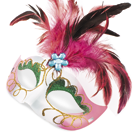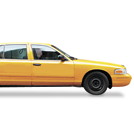|
Rio de Janeiro, Brazil
 Value Added Tax
Value Added Tax
➤ VAT is levied at different rates depending on the jurisdiction, but averages 19 percent in Rio de Janeiro.
➤ Certain products for display or consumption are exempt from import tariffs if they are registered with the Brazilian government, and refunds may be available.
➤ The tax code in Brazil is extremely complicated, and the assistance of a professional on Brazilian import tax matters is advised.
➤ Brazil doesn't participate in the ATA Carnet program.
 Voltage
Voltage
➤ Exhibit halls operate on both 110 and 220 volts.
➤ Brazilian electrical plugs have two circular prongs, or two vertical blades like U.S. plugs.
 Garbage
Garbage
➤ Fees for booth space typically include garbage removal. Daily trash service is sometimes included in this fee, but can be ordered from the show organizer if not.
➤ Exhibit builders are usually responsible for disposing of build-and-burn exhibits and charge a flat fee depending on booth size and materials.
 Cellphones
Cellphones
➤ Purchase a Brazilian SIM card if you won't need a local number, though you may need a local to buy it for you due to government restrictions.
➤ Stores with disposable phones are plentiful in the city's shopping centers.
 Shipping
Shipping
➤ Shipments to Rio by air can take two days. Ocean freight can take up to a month.
➤ Navigating customs can be very difficult, expensive, and lengthy. Exhibitors should consider using build-and-burn booths or rental exhibits and purchasing items locally.
➤ It is essential to work with a skilled freight forwarder and customs clearance agent.
➤ Make sure exact shipment weights are on all items, and use plastic pallets rather than wooden shipping materials to avoid common snags in customs.
 Emergencies
Emergencies
➤ Dial 190 for the police department, 193 for the fire department, and 192 for medical emergencies. Operators may not speak English.
Greetings and Culture

➤ Introductions begin with a handshake, after which business cards can be exchanged. Informal greetings may include a back slap for men or air kisses between women.
➤ Do not use the "OK" gesture common in the United States. In Brazil, it's the equivalent of extending your middle finger.
➤ Brazilians prefer to do business with friends. As such, don't talk about business until there has been ample personal conversation.
➤ Do not bring up politics, poverty, or crime during conversations, and do not make observations of a sexist nature about Brazilian women. Also, do not refer to Brazilians as Latino, and do not refer to people from the United States as American; Brazilians consider themselves American, too.
➤ Gifts are uncommon in business relationships and might be viewed as a bribe if the value of an item is significant. Inexpensive, business-related objects are best for giveaways.
➤ It is not considered rude to interrupt one another in the Brazilian culture.
Hospitality

➤ Large exhibits usually feature lounges where fruit and pastries, small sandwiches, chocolates, biscuits, and even full meals are served. In Brazil, small exhibits typically offer some kind of hospitality service.
➤ Brazilian coffee, soft drinks, juices, beer, and wine are common on the show floor. Caipirinha, a Brazilian cocktail made with sugarcane alcohol, is also common.
➤ Breakfast meetings are uncommon in Rio, but dinner meetings are popular. Expect dinners to be scheduled for 8 p.m. or later, and know that they can easily last for several hours.
➤ Table manners are important in this culture.
Language

➤ Portuguese is the primary language and little English is spoken, so hire a translator who speaks Portuguese, English, and Spanish.
➤ Literature and signs should be printed in Portuguese, and business cards should have both English and Portuguese.
Staff Attire

➤ Business suits in conservative colors are most common. Overly colorful neckties or those with cartoonish figures may be viewed as unprofessional.
➤ It is considered rude for visitors to wear green and gold – the colors of the Brazilian flag. The color purple often denotes mourning or death.
➤ Tattoos, body piercings, and sneakers are not suitable for shows in Brazil.
Venues and Resources

➤ With 936,000 square feet of exhibit space, RioCentro ( www.riocentro.com/br) is the largest exhibition venue in South America. It is located well outside of the city center in an area with amenities. The nearest tourist area with hotels and restaurants is Barra de Tijuca, which is a 25-minute taxi ride away.
➤ The International Federation of Exhibition and Event Services ( www.ifesnet.com) can connect exhibitors to vendors and other resources needed for international exhibiting.
➤ The International Association of Exhibitions and Events ( www.iaee.com) can provide vendor information and other resources for exhibiting overseas.
Installation and Dismantle

➤ The use of union workers is not required, so labor is generally cheap. However, the quality can vary greatly with independent workers. So make arrangements through your exhibit house or the show organizer.
➤ Booth designs and engineering documents for double-deck exhibits must be submitted to the show organizer for review.
➤ Have someone who speaks Portuguese and English providing on-site supervision during install.
➤ Brazil's casual approach to timeliness can cause issues, so be very clear about the work schedule.
➤ Most contractors charge a flat fee versus an hourly rate.
➤ Exhibit halls are not always air conditioned, so plan to use small fans to cool your booth.
General Facts and Tips

➤ When entering a cab in Rio de Janeiro, make sure that the meter is running and do not accept a flat rate.
➤ Hotel rooms should be booked well in advance, and exhibitors should use show-affiliated hotels when possible.
➤ Traffic congestion can be severe, and virtually all hotels are at least 25 minutes from the city's main convention venue.
➤ It is common for Brazilians to be 30 minutes to an hour late for social events, as punctuality is not that important.
➤ Brazilians typically need less personal space than other cultures, and they will often touch a person's hands, arms, or shoulders during a conversation.
➤ Expect to pay royalties for music played in an exhibit. For payment information, contact the Central Bureau of Collection and Distribution at www.ecad.org.br.
SOURCES
Fabricio Amilibia, AAG Workshop; Christopher Dorn, Idea International Inc.; Ben Einer, Derse Inc.; Rachel Rowland, Glow; James Schnauer, Glow; Jeannine Swan, Global Exhibit Management
|







 ➤ Introductions begin with a handshake, after which business cards can be exchanged. Informal greetings may include a back slap for men or air kisses between women.
➤ Introductions begin with a handshake, after which business cards can be exchanged. Informal greetings may include a back slap for men or air kisses between women. ➤ Large exhibits usually feature lounges where fruit and pastries, small sandwiches, chocolates, biscuits, and even full meals are served. In Brazil, small exhibits typically offer some kind of hospitality service.
➤ Large exhibits usually feature lounges where fruit and pastries, small sandwiches, chocolates, biscuits, and even full meals are served. In Brazil, small exhibits typically offer some kind of hospitality service.  ➤ Portuguese is the primary language and little English is spoken, so hire a translator who speaks Portuguese, English, and Spanish.
➤ Portuguese is the primary language and little English is spoken, so hire a translator who speaks Portuguese, English, and Spanish.  ➤ Business suits in conservative colors are most common. Overly colorful neckties or those with cartoonish figures may be viewed as unprofessional.
➤ Business suits in conservative colors are most common. Overly colorful neckties or those with cartoonish figures may be viewed as unprofessional. ➤ With 936,000 square feet of exhibit space, RioCentro (
➤ With 936,000 square feet of exhibit space, RioCentro ( ➤ The use of union workers is not required, so labor is generally cheap. However, the quality can vary greatly with independent workers. So make arrangements through your exhibit house or the show organizer.
➤ The use of union workers is not required, so labor is generally cheap. However, the quality can vary greatly with independent workers. So make arrangements through your exhibit house or the show organizer. ➤ When entering a cab in Rio de Janeiro, make sure that the meter is running and do not accept a flat rate.
➤ When entering a cab in Rio de Janeiro, make sure that the meter is running and do not accept a flat rate. 